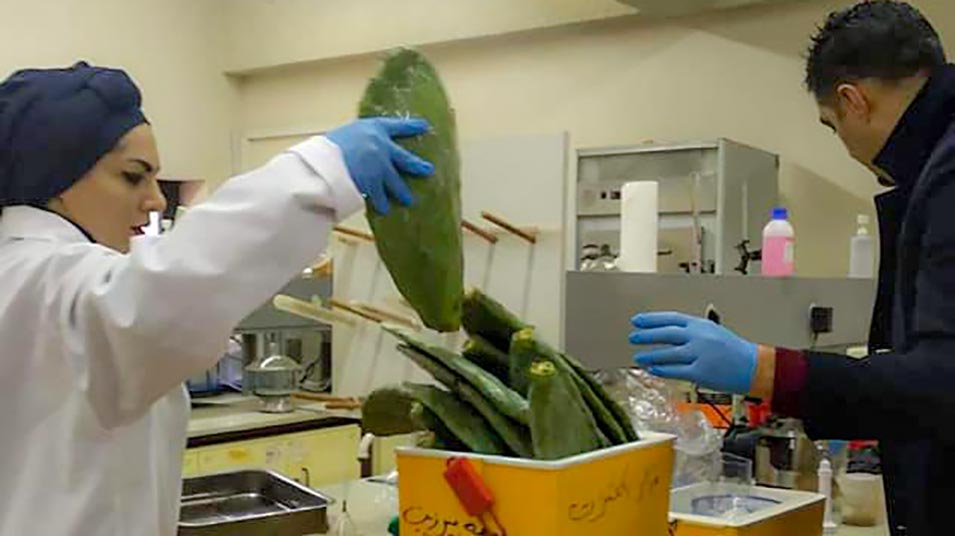New eco-friendly, quick-absorbent hydrogel produced in university labs
A research team led by the Birzeit University’s Institute of Environmental and Water Studies produced in collaboration with Cadi Ayyad University, Morocco, at Birzeit University’s labs a low-cost hydrogel. It is made from locally available ingredients that include cactus and waste materials to enhance its potential of absorbing industrial pollutants.
The local research team comprises Rashed Al-Sa’ed, Ghadeer Arafeh, Tareq Aqhash, and Mohammad Hatem, faculty members of the Institute of Environmental and Water Studies. Faisal Aziz represented Cadi Ayyad University.
The production is part of an ongoing project titled “Assessment of wastewater treatment technologies and promotion of smart irrigation systems in the MENA Region using an eco-friendly gum–MENERA.” Funded by the IHE Delft Partnership Program for Water and Development (DUPC2), it implements field experiments and studies on the safe irrigation of agricultural products with treated water by developing a superabsorbent hydrogel polymer.
Due to the coronavirus pandemic and the travel and movement restrictions that have been imposed globally, the research team had to reconsider their planned studies and produced the hydrogel virtually, using aloe vera powder.
The research team also embarked on an evaluation study to monitor the growth of corn and millet seeds when using field water, reclaimed water that was retrieved from constructed wetlands. The team will evaluate plant growth, taking into consideration plant shape, the maturity of the fruit, its sensory quality, and productivity, among other factors.
Upon completion of this phase, a new study will investigate the social and economic impact of the super-absorbent hydrogel polymer on farmers and consumers. It will explore the marketing opportunities of the new product and present recommendations to policymakers in the field of water and agriculture in Palestine, Morocco, and Tunisia.







